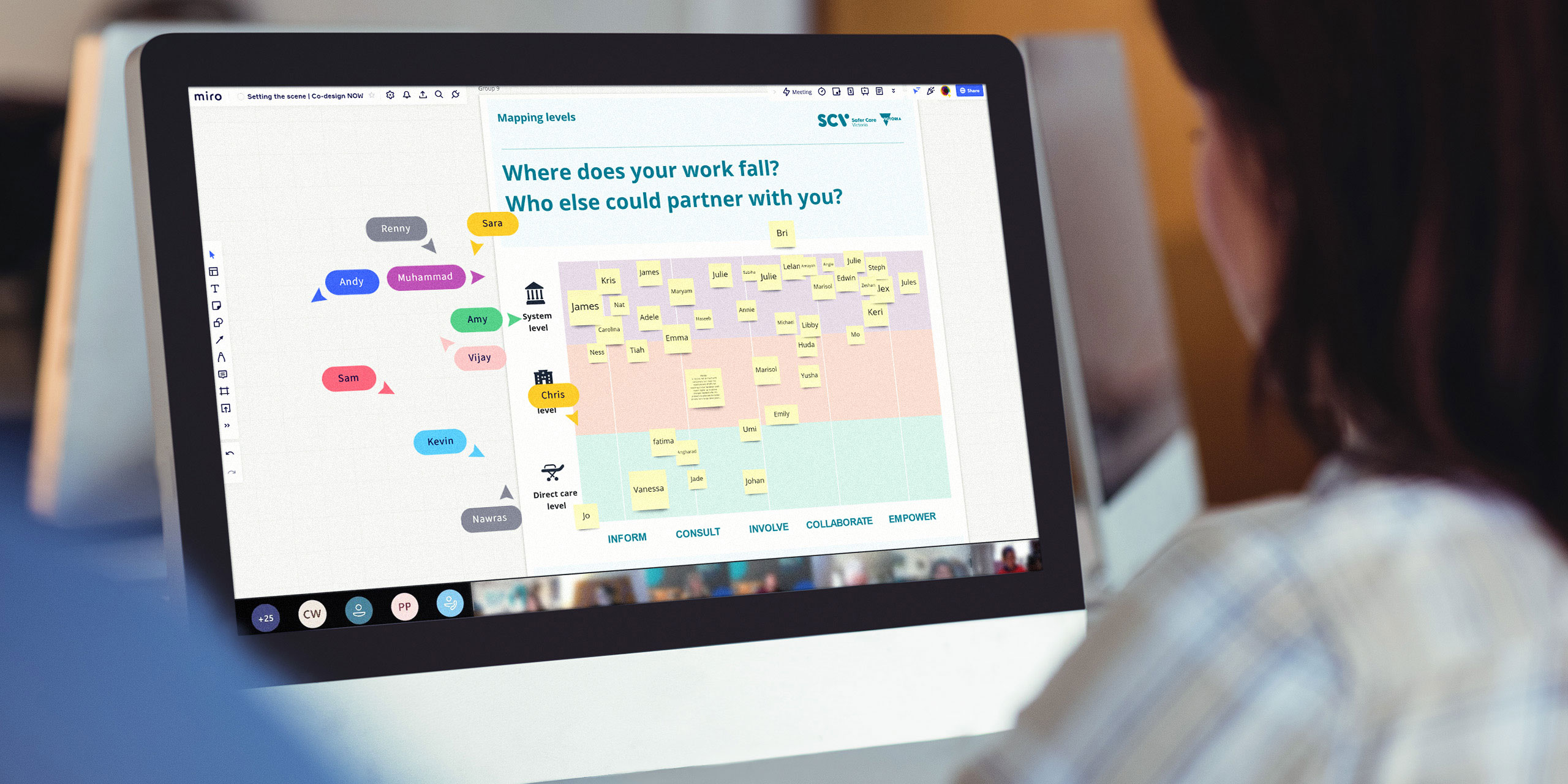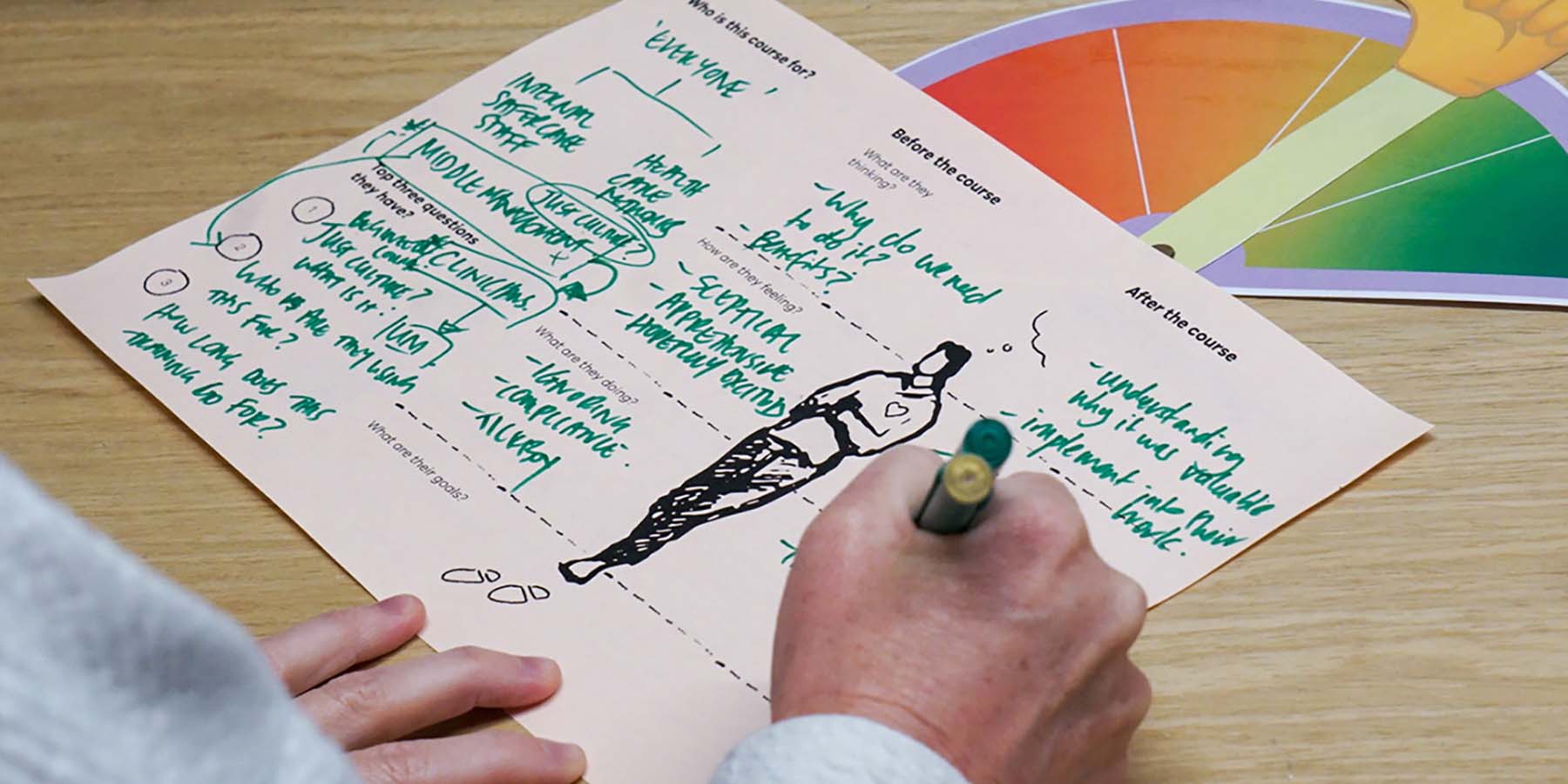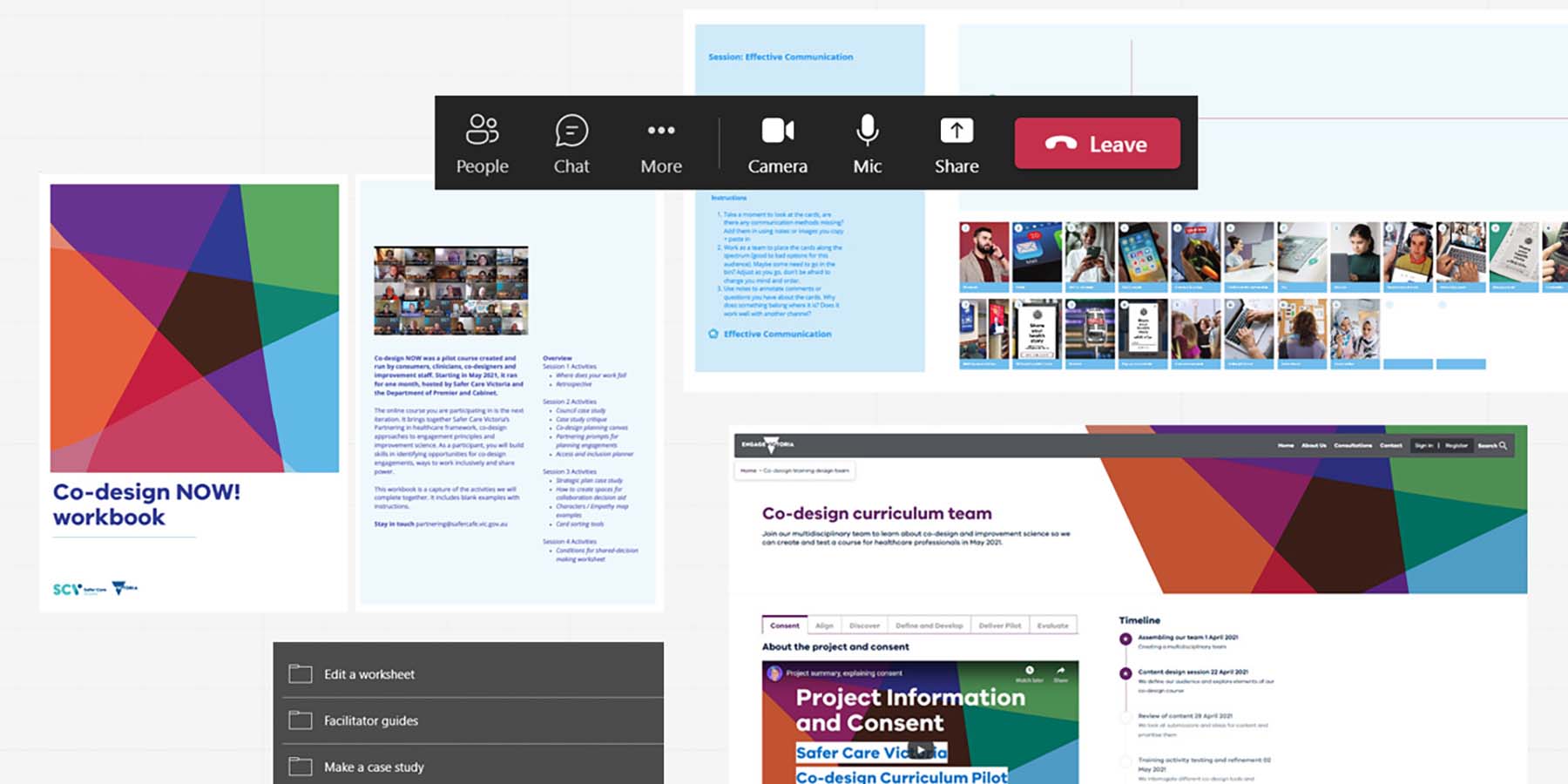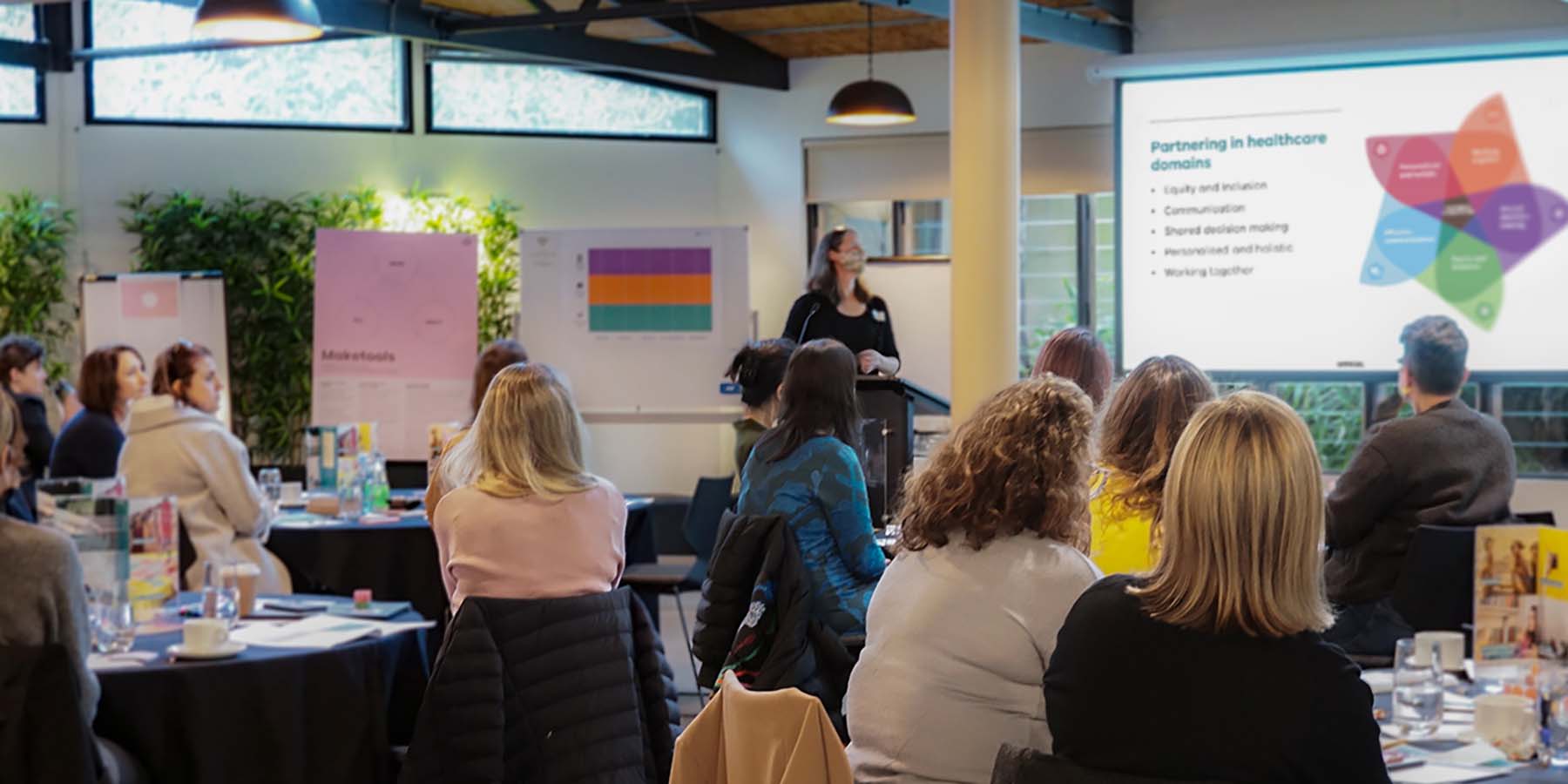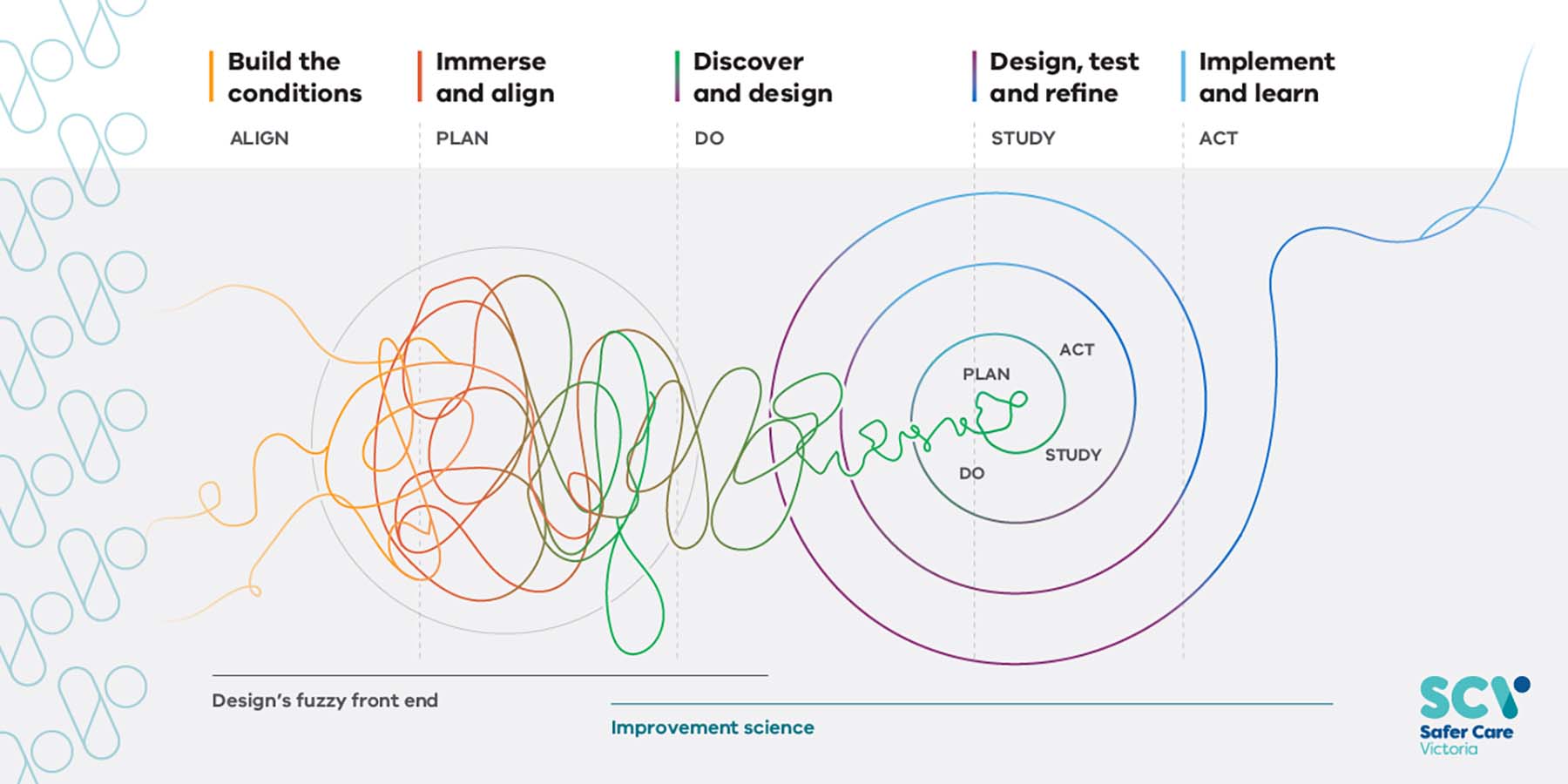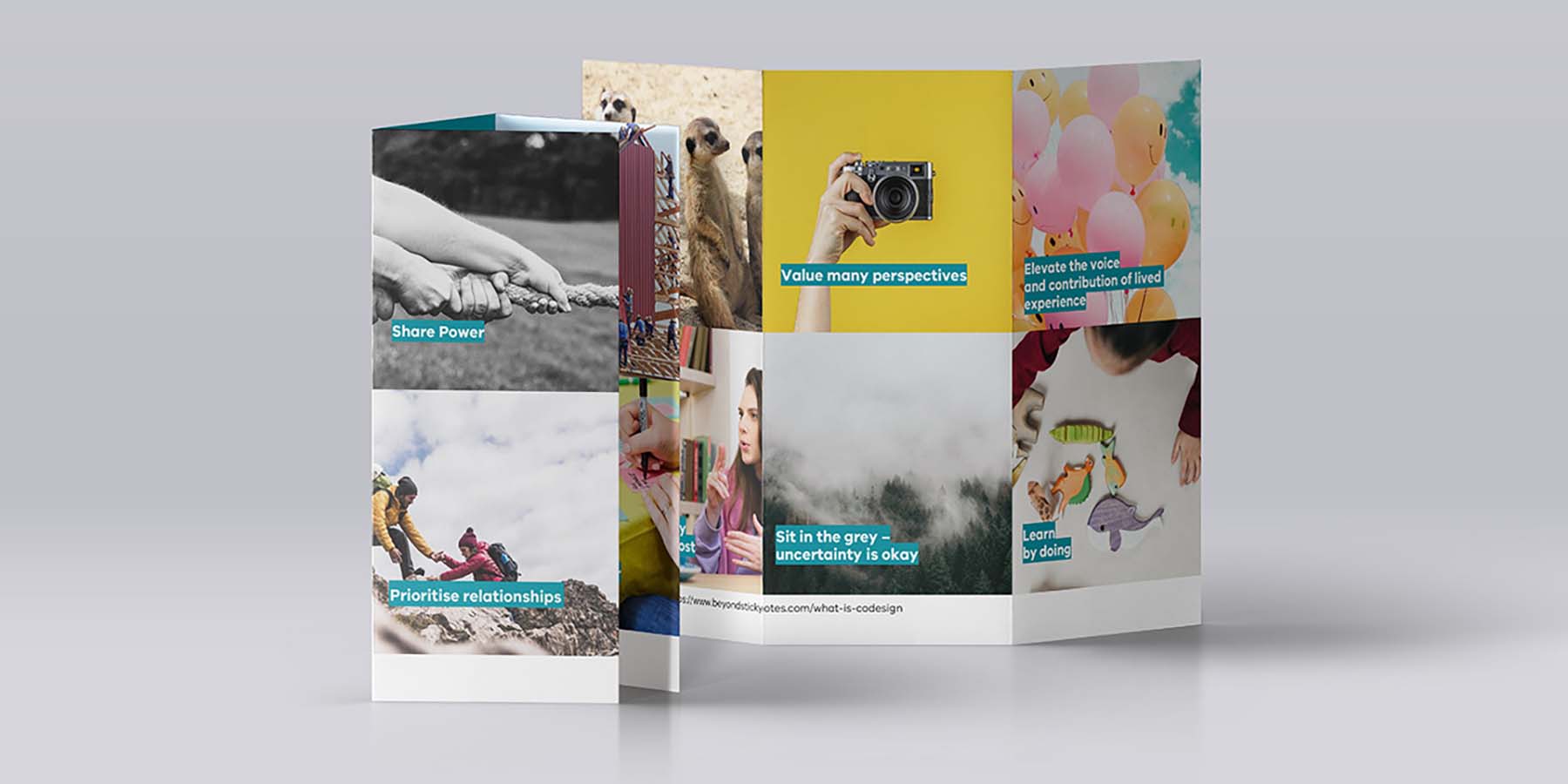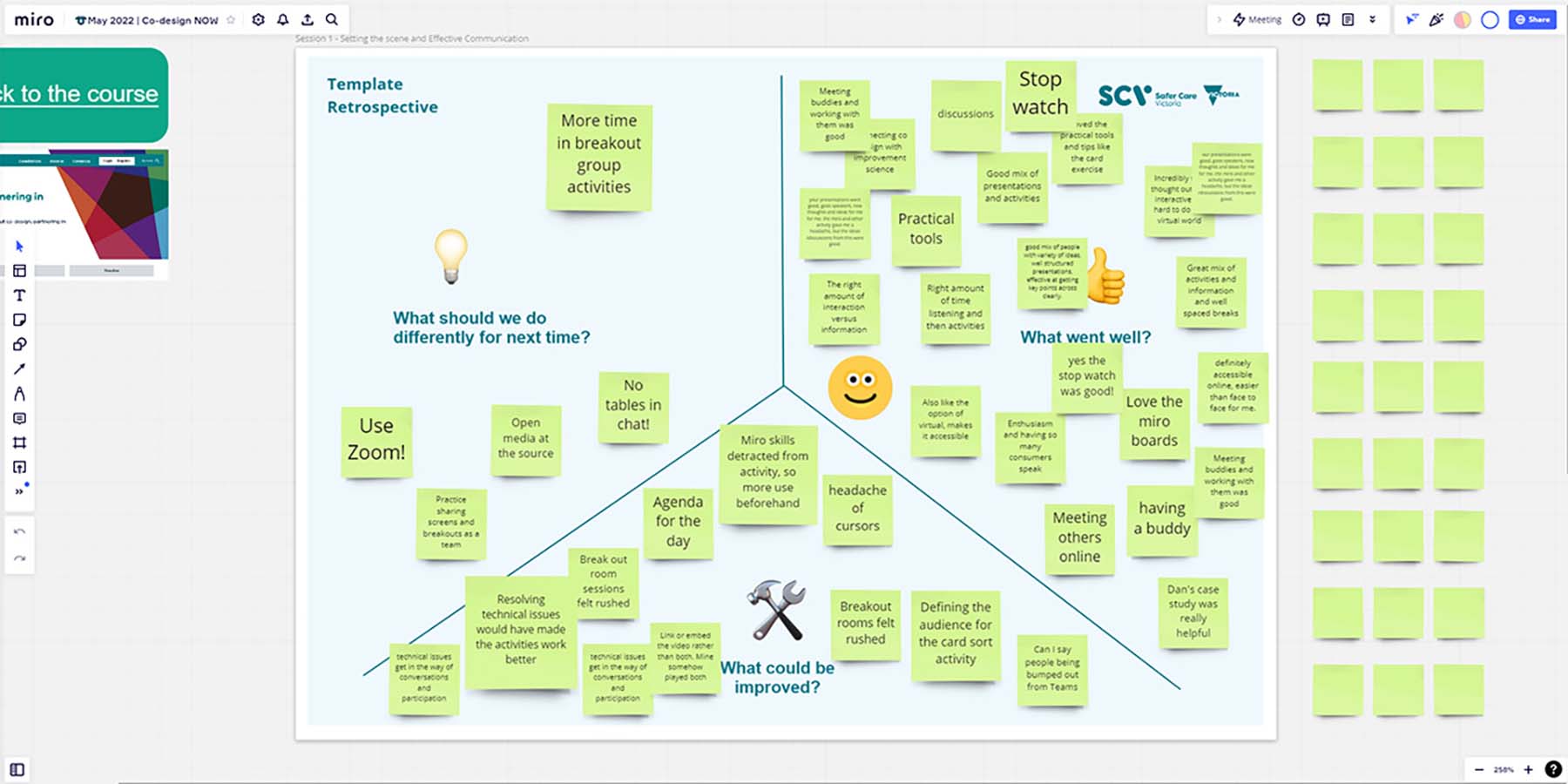Our approach is as important as the outcome
How we designed the course was as important to us as the outcome we delivered. It was important in our course design to center lived-experience and different types of “knowing”. By involving health consumers in our core team as designers and co-facilitators we showed that partnering was possible and valuable to quality improvement.
Many of the positive comments in our evaluations can be attributed directly to the establishment of a multi-disciplinary team, with diverse lived and living experience.
An agile pilot leveraging Plan-Do-Study-Act (PDSA) cycles
The course was created in 12-weeks with a passionate team of nine: consumers, clinicians, co-designers and improvement staff. Each week this core team came together to create the course founding it on the Partnering in healthcare framework, co-creation and improvement science principles.
Iterative in its design and delivery
- Our train-the-trainer approach was adapted for online delivery
- Course design was biased to build practical skills, using 70-20-10 Model for Learning and Development
- Baked-in improvement science and partnering for agile course delivery with participants responding to their needs
- Creation of support systems, buddies and a community of practice for learners to extend their work and push practice beyond the course delivery
- Accessibility was baked into the content delivery with use of videos, worksheets and asynchronous communication
An invitation for all of us to do things differently
The course both leveraged and extended design processes and engagement frameworks. We co-created extensions to the design squiggle (Newman, 2019) and IAP2 Spectrum of Public Participation (IAP2, 2018) to describe what “partnering” looked and felt for learners.
The process and experience of Co-design NOW! is an invitation for learners to “learn by doing”, reflect critically and “sit in the grey”. All important skills from a designer’s toolbox.

